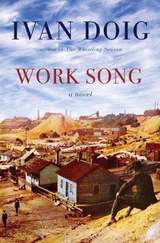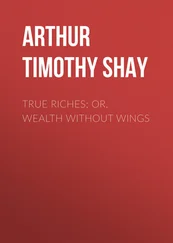Even the roof wasn’t far enough. With grim elation Boadicea mounted the west wind pylon, pausing in the lee of the first vane to marvel, dispassionately, that there could be enough heat left in these wintry blasts to be converted into the steady whirling of the metal blades. Was it heat? or just the momentum of the molecules of gas? or was there any difference? In any case, science was wonderful.
So forget Alethea, she told herself. Rise above her. Consider the clouds, and determine the actual colors incorporated in their mottled, luminous, numinous gray. Arrange the world so that her intolerable sneering profile was not in the foreground, and then it would become, perhaps, a satisfactory sort of world, large and bright and full of admirable processes that a clear mind could learn to deal with, the way the pylons dealt with the wind, the way her father dealt with people, even such otherwise intractable people as Alethea and, occasionally, herself.
Higher she mounted, above the highest vanes, to the small eyrie of steel hoops at the top of the pylon. The winds buffeted. The platform swayed. But she felt no vertigo, only the steadying satisfaction of seeing the world spread out in so orderly a way. The great jumble of Worry became, from this height, as comprehensible as a set of blueprints: the fallow flowerbeds and quincunxes of small trees in the Whitings’ private gardens on the roof below; then, stepwise in terraces below these, on the more extensive rooftops of the wings, were the pools and playgrounds of the other residents of the complex; farthest down, bounded by a broad defensive crescent of garages, stables, and silos, were the kitchen gardens, poultry yards, and tennis courts. The few people in sight all seemed to be engaged in emblematic tasks, like figures in a Brueghel: children skating, a woman scattering corn for chickens, two blue-jacketed mechanics bent over the idling engine of a limousine, a man walking a dog toward the trees that screened the western gate-house. To one who stood on the roof those trees would mark the limit of the horizon, but from this higher vantage one could see over them as far as the blue-gray zigzag of housetops that had once been — and not so long ago that Boadicea couldn’t remember it herself — the village of Unity. Most of the village’s former residents lived in Worry now. Their clapboard houses stood empty through most of the year, as many as still stood at all. It was saddening to think that a whole way of life, a century of traditions, had to come to an end for the new way to begin. But what was the alternative? To keep it going artificially, an instant Williamsburg? In effect that was what the summer people were doing now, at least with the better homes. The rest had been scavenged for their meat — siding, plumbing, curious bits of carpentry — and the bones left to weather into a more picturesque condition, at which point, doubtless, they would go to the auction block too. It was sad to see, but it was necessary — the result of forces too large to be withstood, though they might be channeled and shaped with more or less love and imagination. Worry, with its neo-Norman castellations, its out-lying parks and commons, and its innovative social engineering, surely represented the process of feudalization at its most humane and, so to speak, democratic. A Utopia of sorts. Whether, finally, it were a Utopia for the likes of Boadicea she could never decide. Ownership of so much land and wealth was problematical enough, but beyond this was the moral question of one’s relation with one’s tenants. There were over five hundred at last count. Though they would all have denied it — and could in fact be seen denying it in the movie Boadicea had made way back when — their condition was uncomfortably close to serfdom. But uncomfortable, it seemed, only for Boadicea, since the waiting list of qualified applicants who wanted to sign on and move in was ridiculously in excess of the foreseeable openings. Kids at school were always sounding her out about their chances of being moved to the top of the list; some had offered outright bribes if she would put in a word with her father. Once poor Serjeant had got into hot water for accepting such a bribe.
But to suppose that Daniel Weinreb had so venal a purpose in cultivating her acquaintance was a patent absurdity. The accusation revealed the limits of Alethea’s imagination, for it couldn’t begin to do justice to the scale of Daniel’s ambitions. Daniel meant to be an artist, as great an artist as he could become. Boadicea doubted whether he’d given so much as a moment’s thought to the long-term possibilities of their friendship. Aside from the opportunity (which he was finally to take up today) of paying a visit to Worry and trying his hand at the Whitings’ various instruments, it was unlikely that he considered the acquaintance especially advantageous. Except for the chance (the glorious chance) to talk with someone else who also meant to become a great artist. So really he didn’t seem to have, in a word, designs.
Boadicea, by contrast, lived most of her life in an endless design. Every moment she wasn’t entirely focused on the task in hand she was planning, rehearsing, imagining, daydreaming. What she had planned, vis-a-vis Daniel, was that they would be lovers. She had not drawn up a detailed scenario of how it would come about. She wasn’t even entirely sure of the details of their love’s consummation, since such pornography as she’d looked into had seemed rather ishy, but she was certain that once they’d actually got involved erotically it would be very nice, not to say ecstatic. Daniel, she’d heard tell from various independent sources, had been “intimate” with a number of women (one of them six years older than him and engaged to another man), though no one was prepared to say whether he’d definitely gone all the way. Sex, therefore, could be trusted to take care of itself (at least in her daydreams), and Boadicea was free to elaborate the associated drama: how, quite suddenly, on a whim or a dare or after a fight with her sister, she would run off with Daniel to some sinister far-away capital — Paris or Rome or Toronto — there to lead a life that would be thrilling, elegant, virtuous, simple, and entirely devoted to art in its highest manifestations. Not, however, till they’d graduated, for even in her wildest dreams Boadicea proceeded with caution.
A mile beyond Unity the road climbed a short rise and you could see, for the first time, the gray ferro-concrete tower of Worry. Then the road dipped and the tower sank back into featureless fields.
He was short of breath and his legs were aching from pedaling too fast, but being so near it was psychologically impossible to slow down. Even the wind, gusting from the west, and puffing up his windbreaker before him like a small red sail, seemed to be trying to speed him on his way. He turned right at the unmarked turn-off that everyone knew was the road to Worry, zipped past a man out walking a German shepherd, and arrived out-of-breath at the gatehouse.
A metal gate sprang up from the road in front of him, a hooter began hooting, stopped just long enough for a recorded voice to tell him to get out of his car, and started up again. A uniformed guard came out of the gatehouse holding a sub-machine gun. It would have been disconcerting anywhere else, but Daniel, never having been to Worry before, supposed this was the standard reception that unannounced visitors received.
He reached into his jacket pocket for the invitation disc that Boadicea had given him, but the guard shouted that he should put his hands above his head.
He put his hands above his head.
“Where do you think you’re going, son?” the guard asked.
“I’m visiting Miss Whiting. At her invitation. The disc she gave me is in my pocket.”
Читать дальше












